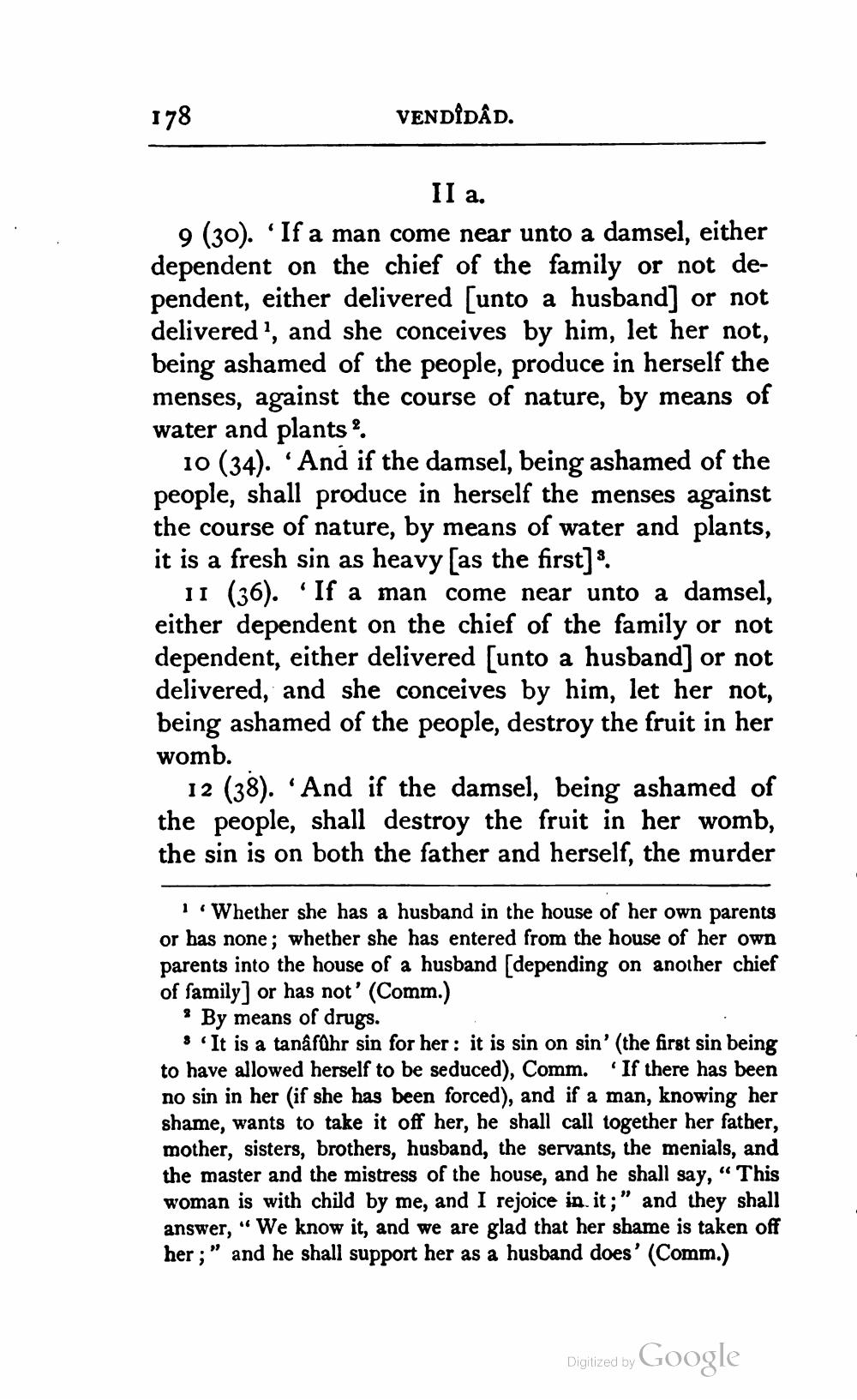________________
178
VENDİDÂD.
II a. 9 (30). 'If a man come near unto a damsel, either dependent on the chief of the family or not dependent, either delivered [unto a husband] or not delivered, and she conceives by him, let her not, being ashamed of the people, produce in herself the menses, against the course of nature, by means of water and plants ?
10 (34). 'And if the damsel, being ashamed of the people, shall produce in herself the menses against the course of nature, by means of water and plants, it is a fresh sin as heavy [as the first]$
11 (36). “If a man come near unto a damsel, either dependent on the chief of the family or not dependent, either delivered [unto a husband] or not delivered, and she conceives by him, let her not, being ashamed of the people, destroy the fruit in her womb.
12 (38). "And if the damsel, being ashamed of the people, shall destroy the fruit in her womb, the sin is on both the father and herself, the murder
1. Whether she has a husband in the house of her own parents or has none; whether she has entered from the house of her own parents into the house of a husband (depending on another chief of family] or has not' (Comm.)
* By means of drugs.
8 It is a tanáführ sin for her: it is sin on sin' (the first sin being to have allowed herself to be seduced), Comm. 'If there has been no sin in her (if she has been forced), and if a man, knowing her shame, wants to take it off her, he shall call together her father, mother, sisters, brothers, husband, the servants, the menials, and the master and the mistress of the house, and he shall say, “ This woman is with child by me, and I rejoice in it;" and they shall answer, “We know it, and we are glad that her shame is taken off her;" and he shall support her as a husband does' (Comm.)
Digitized by Google




